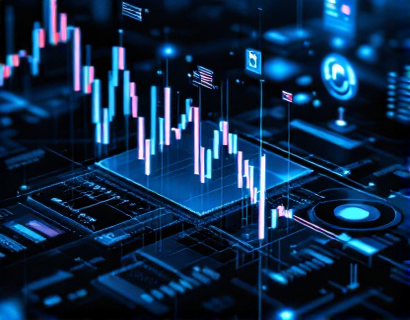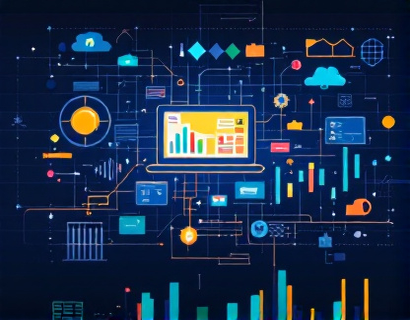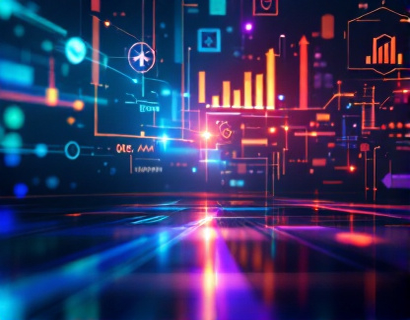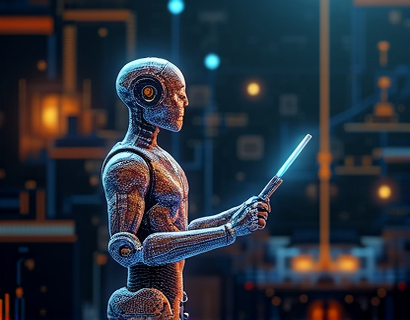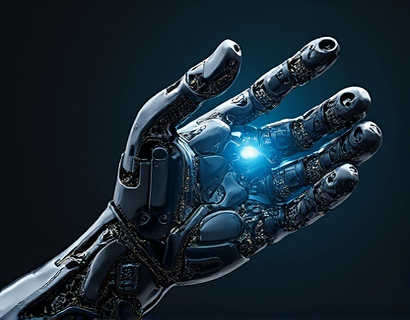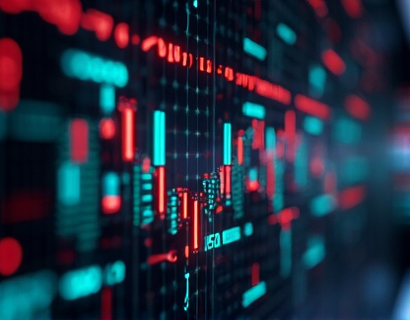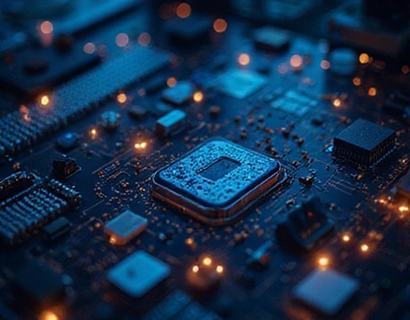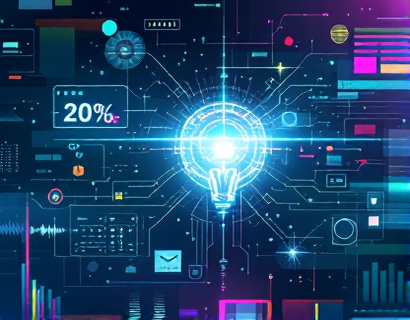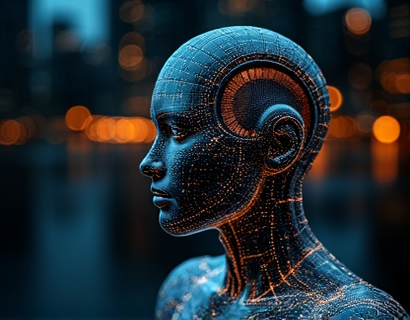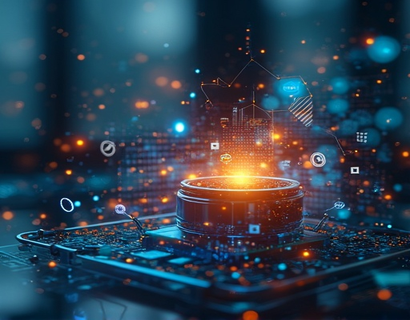The Convergence of AI and Crypto: Pioneering the Future of Finance and Technology
The integration of artificial intelligence (AI) with cryptocurrency is revolutionizing the landscape of digital finance and technology. This convergence, often referred to as TechFinance, is creating innovative solutions that enhance user experiences and set new standards in both sectors. As we delve into this transformative journey, it's essential to understand the foundational technologies and their applications.
Foundations of AI and Cryptocurrency
Artificial intelligence, a branch of computer science, focuses on creating systems that can perform tasks requiring human intelligence, such as learning, reasoning, and self-correction. AI algorithms, particularly machine learning models, are adept at analyzing vast amounts of data to identify patterns and make predictions. On the other hand, cryptocurrency, exemplified by Bitcoin, is a digital or virtual currency that uses cryptography for security and operates on a decentralized network known as a blockchain.
Blockchain technology, the backbone of cryptocurrencies, is a distributed ledger that records transactions across multiple computers. This ensures transparency, security, and immutability. The combination of AI and blockchain leverages the strengths of both technologies, enabling more efficient, secure, and intelligent financial systems.
Enhancing Security with AI
One of the primary benefits of integrating AI with cryptocurrency is the enhancement of security measures. Traditional security protocols can be vulnerable to sophisticated cyber attacks. AI algorithms can detect and respond to anomalies in real-time, significantly reducing the risk of fraud and unauthorized access. Machine learning models can analyze transaction patterns and identify suspicious activities, providing a proactive defense mechanism.
Smart contracts, self-executing contracts with the terms directly written into code, can also benefit from AI. AI can ensure that smart contracts adhere to predefined rules and conditions, reducing the risk of errors and manipulations. This automation not only increases efficiency but also enhances the overall security of the blockchain ecosystem.
Improving User Experience through Personalization
The user experience in the crypto space can be significantly improved through AI-driven personalization. AI algorithms can analyze user behavior, preferences, and market trends to provide tailored recommendations and insights. For instance, AI can suggest optimal trading strategies based on historical data and real-time market conditions, helping users make more informed decisions.
Wallet applications can also leverage AI to offer personalized experiences. AI can manage assets, monitor transactions, and provide alerts based on user-defined parameters. This level of customization enhances user satisfaction and engagement, making the crypto experience more accessible and user-friendly.
Optimizing Trading and Investment Strategies
AI has the potential to revolutionize trading and investment strategies in the crypto market. Traditional trading relies heavily on human analysis, which can be limited by cognitive biases and the inability to process vast amounts of data quickly. AI algorithms, however, can analyze multiple data sources simultaneously, identifying trends and patterns that humans might miss.
Automated trading bots powered by AI can execute trades based on predefined criteria, 24/7, without emotional bias. These bots can adapt to changing market conditions, optimizing trades for maximum profitability. Additionally, AI can provide predictive analytics, forecasting market movements and helping investors make strategic decisions.
Enhancing Decentralized Finance (DeFi)
Decentralized Finance (DeFi) is an emerging sector that leverages blockchain technology to create financial services without traditional intermediaries. AI plays a crucial role in enhancing DeFi platforms by improving risk management, fraud detection, and user experience. AI algorithms can assess creditworthiness and manage lending and borrowing processes more efficiently, reducing the risk of defaults.
AI can also optimize yield farming strategies, where users earn rewards by providing liquidity to DeFi protocols. By analyzing various protocols and their performance, AI can recommend the most profitable opportunities, maximizing returns for users. This level of optimization is essential in a market characterized by high volatility and rapid changes.
Scalability and Efficiency
One of the significant challenges in the crypto space is scalability. As the number of transactions increases, blockchain networks can become congested, leading to slower transaction times and higher fees. AI can help address these issues by optimizing network operations and resource allocation. Machine learning models can predict network congestion and adjust parameters to maintain smooth operations.
AI can also enhance the efficiency of mining processes in proof-of-work blockchains. By optimizing the computational resources required for mining, AI can reduce energy consumption and lower operational costs. This not only makes the process more sustainable but also makes it more accessible to a broader range of participants.
Regulatory Compliance and Transparency
The regulatory landscape for cryptocurrencies is evolving, and compliance is becoming increasingly important. AI can assist in ensuring that crypto platforms adhere to regulatory requirements by monitoring transactions and identifying potential compliance issues. AI-driven systems can analyze large datasets to detect suspicious activities and generate reports for regulatory bodies.
Transparency is another critical aspect of the crypto ecosystem. AI can enhance transparency by providing real-time insights into transactions and operations. Blockchain's inherent transparency, combined with AI's analytical capabilities, ensures that all stakeholders have access to accurate and up-to-date information, fostering trust and confidence in the system.
Future Prospects and Challenges
The future of AI and cryptocurrency is promising, with numerous potential applications yet to be explored. However, there are also challenges that need to be addressed. One of the primary concerns is the ethical use of AI, ensuring that algorithms are fair and unbiased. There is also the need for robust regulatory frameworks that balance innovation with consumer protection.
Interoperability between different blockchain networks and AI systems is another area that requires attention. As the ecosystem grows, the ability to seamlessly integrate various technologies will be crucial for widespread adoption. Continuous research and development are essential to overcome these challenges and unlock the full potential of AI in the crypto space.
In conclusion, the merging of AI and cryptocurrency is paving the way for a new era of financial and technological innovation. By enhancing security, personalizing user experiences, optimizing trading strategies, and improving the efficiency of DeFi platforms, this convergence is setting new standards in the industry. As we move forward, the collaborative efforts of tech-savvy enthusiasts and innovators will be key to realizing the full potential of this transformative combination.




